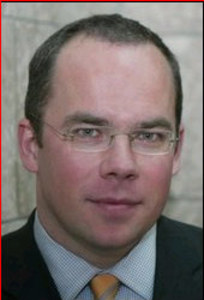
Consider the curious case of Pauline Marois: intelligent, dedicated, elegant, prone to losing. In 1985, she ran for the Parti Québécois leadership and lost to Pierre-Marc Johnson, who would not last two years in the job. In 2005, she ran again and lost to André Boisclair, who would not last two years in the job. In 2007, she ran again, unopposed this time, and did not lose. She has kept the job for nearly four years. Her leadership even survived an election loss at the end of 2008. So that’s something.
In April, she won the most resounding vote of confidence of any leader in her party’s history, over 93 per cent. By that shaky measure she’s more popular among Péquistes than René Lévesque or Lucien Bouchard ever were. Most polls suggest she’ll beat the desperately unpopular Jean Charest in the next provincial election. And yet Marois’s PQ is falling apart.
On Monday, three members of her caucus resigned to sit as Independents. On Tuesday morning a fourth joined them. Each said she’s a great lady, while admitting she leads a party they can no longer support. Marois scrambled to contain the damage, or indeed simply to comprehend it. Well she might: no wily opponent brought her this low. It was all an accident. She was side-swiped by two of the biggest egos in the history of Quebec politics.
The first culprit is Régis Labeaume, who seemed a clever fellow when he came out of nowhere to become Quebec City’s mayor in 2007. Re-elected in 2009 with nearly 80 per cent of the vote, he has looked increasingly like Captain Ahab in pursuit of a white elephant (these stories always get mangled in translation): a new hockey rink for Quebec City. Labeaume has managed to con Charest’s provincial government into splitting the bill for his project with the Quebec City municipal council. Only Stephen Harper, among federal party leaders, finally decided he would oppose Labeaume’s demands for federal money, although even Harper seemed sorely tempted for a long time. Quebec City has a lot of seats. A popular mayor is a handy friend. For that matter, an increasingly frenzied, single-issue mayor is an annoying enemy.
So when Labeaume finally shook loose a private-sector investor for his scheme, Quebecor honcho Pierre-Karl Péladeau, he added Péladeau to the list of subjects he could use to bully politicians. He called for a new provincial law removing other developers’ right to challenge the Péladeau deal in courts. And if that wasn’t cheeky enough, he demanded that the law be passed tout de suite, before the national assembly rose for the summer. Which would require all-party consent.
Labeaume was proposing a trifecta of lousy government: citizens’ rights and the privileges of parliamentarians would take a back seat to an untendered sweetheart deal with a plutocrat. It made no sense for Marois’s party to introduce the bill Labeaume demanded, except, of course, that she was kind of hoping to win the aforementioned Quebec City seats in the next election. So her caucus would just have to hush up.
It might have stayed hushed, too, if it weren’t for the owner of the other outsized ego in the picture: Jacques Parizeau. The first three defectors from Marois’s caucus were Parizeau surrogates. Lisette Lapointe is his wife. Louise Beaudoin was one of his senior ministers. Pierre Curzi, a movie actor who’s newer to electoral politics, is a Parizeau admirer from way back.
Parizeau was at the national assembly when everything blew up on Monday. He has almost never been far when trouble hit the sovereignist movement. He led a walkout from Lévesque’s government in 1984 that ended Lévesque’s career. He undermined Lévesque’s successor, Pierre-Marc Johnson. Much later he was a constant critic of Lucien Bouchard when Bouchard replaced him. He’s made no secret of his disdain for Marois. He sees her as too weak an advocate of separatism. He talked up Gilles Duceppe for a while earlier this year. Then Duceppe ran into a spot of electoral trouble on May 2, as you may have heard.
What does a hockey rink have to do with the half-century-old separatist project? Not much. Marois just got squeezed, is all. Jumping through Labeaume’s silly hoops made her weak. Being weak made her the latest victim of the Parizeau wing’s orthodoxy. In both cases it was nothing personal.
There was a fitful attempt in some Quebec circles after the May 2 federal election to depict the Bloc Québécois’ disastrous showing as excellent news for the separatist movement. At last, supporters of sovereignty could stop dividing their energy between Ottawa and Quebec City. The re-election of Stephen Harper, and the NDP sweep of francophone Quebec, would throw the different political cultures of Quebec and English Canada into sharp relief.
Perhaps by the weekend some clever theorist will venture to describe Marois’s discomfiture as a similar boon to the sovereignist movement. Don’t buy it. Jacques Parizeau actually has a point: the PQ keeps falling into the hands of leaders who don’t share Parizeau’s reckless, romantic passion for the cause. But that’s simply because Quebecers don’t, either. How does Jean Charest, the least popular premier in the country, a bigger supporter of Labeaume’s dumb schemes than Marois is, survive while she flounders? Partly it’s skill, to be sure. But mostly it’s because he doesn’t have to spend half his time chasing fantasies.
The ego behind the exits at the PQ
Paul Wells on how Jacques Parizeau lives to undermine leaders who don’t share his reckless passion for sovereignty






















Laissez un commentaire Votre adresse courriel ne sera pas publiée.
Veuillez vous connecter afin de laisser un commentaire.
Aucun commentaire trouvé